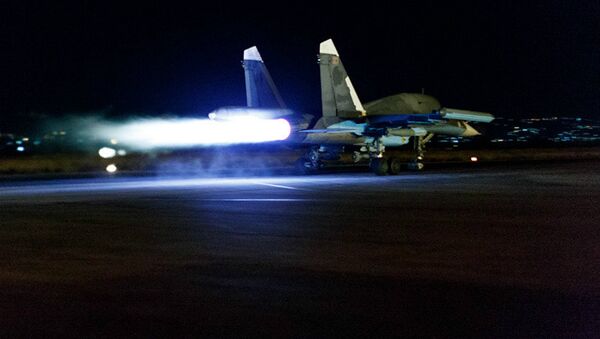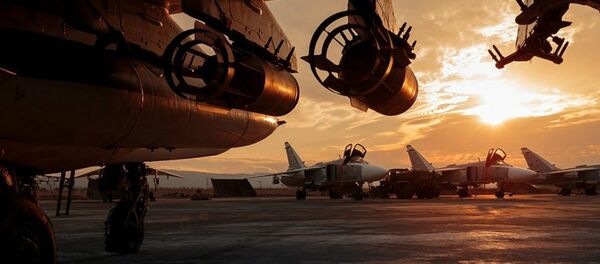On Wednesday, Ministry of Defense spokesman Maj. Gen. Igor Konashenkov confirmed that the airstrike had killed 12 Nusra Front commanders, and severely wounded Abu Mohammad al-Julani, commander-in-chief of the Syrian militant group Tahrir al-Sham and former self-proclaimed emir of the al-Nusra Front, the Syrian branch of al-Qaeda, in Idlib province.
Al-Julani received multiple heavy fragmentation wounds and lost a hand, leaving him in critical condition, according to several independent sources. Ahmad al-Ghizai, al-Julani's close aid and head of security, was also killed, along with about 50 militants from the commanders' security detail, Konashenkov said.
Russian military command took the decision to carry out the strikes after receiving and confirming intelligence from multiple sources about the terrorists' meeting.
Su-35 and Su-34 fighters and fighter-bombers participated in the operation.
On Saturday, the Russian Defense Ministry reported that Daesh (ISIS/ISIL) and al-Nusra suffered their heaviest losses to date over the last few months as they attempted to launch offensives in Syria's western and eastern regions to stem the Syrian Army's successful operation to liberate broad swathes of the country.
Maj. Gen. Konashenkov said the Daesh and al-Nusra offensives had been thwarted with the help of Russian air power, resulting in the death of over 2,300 Daesh militants and 16 field commanders. 67 terrorist strongholds, over two dozen tanks, 21 multiple rocket launchers, nearly 150 machine-gun equipped vehicles and 17 vehicle-borne improvised explosive devices were destroyed, along with over 50 ammunition depots, Konashenkov said.



